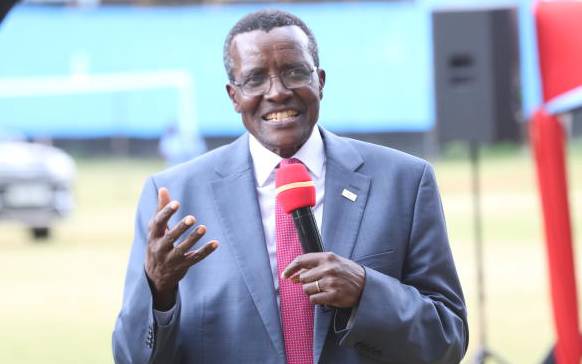×
The Standard e-Paper
Kenya’s Boldest Voice

Chief Justice David Maraga when he addressed students of Nyambaria Boys High School in Nyamira County during the launch of Nyambaria Alumni Association on 26/1/2019. [Sammy Omingo/Standard]
Chief Justice David Maraga has given a harsh verdict on how the country is being governed in a stinging address to an international audience in the United Kingdom.